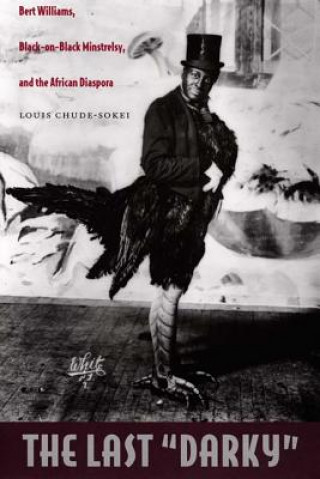
Kód: 04938260
Last "Darky"
Autor Louis Chude-Sokei
The Last "Darky" establishes the late-nineteenth and early-twentieth-century comedian Bert Williams as central to the development of a global black modernism centred in Harlem's Renaissance. Before integrating Broadway in 1910 via ... celý popis
- Jazyk:
 Angličtina
Angličtina - Väzba: Brožovaná
- Počet strán: 288
Nakladateľ: Duke University Press, 2006
- Viac informácií o knihe

Mohlo by sa vám tiež páčiť
-

Implementing Peace Agreements
69.78 € -

Dingbats A5+ Wildlife Brown Bear Notebook - Plain
19.56 € -9 % -

Stand Firm - Resisting the Self-Improvement Craze
21.88 € -

Interventional Radiology: A Survival Guide
80.37 € -

Go In Peace
33.27 € -

Protein Folding Problem And Its Solutions, The
147.95 € -
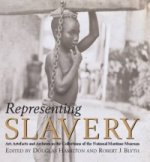
Representing Slavery
58.39 €
Darčekový poukaz: Radosť zaručená
- Darujte poukaz v ľubovoľnej hodnote, a my sa postaráme o zvyšok.
- Poukaz sa vzťahuje na všetky produkty v našej ponuke.
- Elektronický poukaz si vytlačíte z e-mailu a môžete ho ihneď darovať.
- Platnosť poukazu je 12 mesiacov od dátumu vystavenia.
Viac informácií o knihe Last "Darky"
Nákupom získate 94 bodov
 Anotácia knihy
Anotácia knihy
The Last "Darky" establishes the late-nineteenth and early-twentieth-century comedian Bert Williams as central to the development of a global black modernism centred in Harlem's Renaissance. Before integrating Broadway in 1910 via a controversial stint with the Ziegfeld Follies, Williams was already an international icon. Yet his name has faded into near obscurity, his extraordinary accomplishments forgotten largely because he performed in blackface. Louis Chude-Sokei contends that Williams's blackface was not a display of internalized racism nor a submission to the expectations of the moment. It was an appropriation and exploration of the contradictory and potentially liberating power of racial stereotypes. Crucially, Chude-Sokei argues that Williams's minstrelsy negotiated the place of black immigrants in the cultural hotbed of New York City and was replicated throughout the African Diaspora, from the Caribbean to Africa itself. Williams was born in the Bahamas. When performing the "darky," he was actually masquerading as an African American. This black-on-black minstrelsy thus challenged emergent racial constructions equating "black" with African American and marginalizing the many diasporic blacks in New York. It also dramatized the practice of passing for African American common among non-American blacks in an African American dominated Harlem. Exploring the thought of figures including Booker T. Washington, W. E. B. Du Bois, Marcus Garvey, and Claude McKay, Chude-Sokei situates black-on-black minstrelsy at the center of burgeoning modernist discourses of assimilation, separatism, race-militancy, carnival, and internationalism. While these discourses were engaged with the question of representing the "Negro" in the context of white racism, through black-on-black minstrelsy, they were also deployed against the growing international dominance of African American culture and politics in the twentieth century. Louis Chude-Sokei is Associate Professor of Literature at the University of California, Santa Cruz.
 Parametre knihy
Parametre knihy
Zaradenie knihy Knihy po anglicky The arts Film, TV & radio Films, cinema
37.31 €
- Celý názov: Last "Darky"
- Podnázov: Bert Williams, Black-on-Black Minstrelsy, and the African Diaspora
- Autor: Louis Chude-Sokei
- Jazyk:
 Angličtina
Angličtina - Väzba: Brožovaná
- Počet strán: 288
- EAN: 9780822336433
- ISBN: 082233643X
- ID: 04938260
- Nakladateľ: Duke University Press
- Hmotnosť: 424 g
- Rozmery: 235 × 152 × 24 mm
- Dátum vydania: 16. January 2006
Obľúbené z iného súdka
-
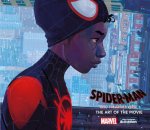
Spiderman Into the Spider-Verse
41.95 € -3 % -

The Animator's Survival Kit
39.42 € -

Art of How to Train Your Dragon 2
41.34 € -6 % -

Art of Godzilla: King of the Monsters
32.06 € -21 % -

Art of Disney Postcards
18.85 € -13 % -
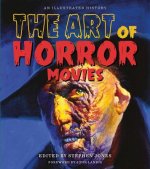
Art of Horror Movies
33.78 € -17 % -

Alien
37.61 € -23 % -

Columbo
79.06 € -

Reel Families
29.24 € -

Puppet Master Complete
56.57 € -

Art of Fantastic Beasts: The Crimes of Grindelwald
41.44 € -14 % -

Sound Effects Bible
24.80 € -17 % -
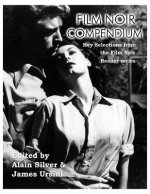
Film Noir Compendium
30.25 € -2 % -

Star Wars The Complete Visual Dictionary New Edition
41.04 € -

The Art and Soul of Dune
49.41 € -20 % -

Alien: The Blueprints
30.05 € -19 % -

The Art of Princess Mononoke
31.36 € -10 % -

Of Walking In Ice
9.97 € -23 % -

Animator's Survival Kit
37 € -3 % -

Art of Mad Max: Fury Road
21.88 € -37 % -

Science of Dune
24.40 € -6 % -

Starting Point: 1979-1996
16.33 € -22 % -

Star Trek: Light-Up Starship Enterprise
12.40 € -9 % -

Eat What You Watch
16.43 € -20 % -

Jurassic Park
52.64 € -5 % -

The Art of Tangled
32.37 € -23 % -

Wes Anderson
30.55 € -21 % -

Walt Disney
17.74 € -16 % -

Story
29.94 € -14 % -

Interstellar
24.30 € -14 % -

Jonesy
10.98 € -23 % -

Making of Alien
48.30 € -23 % -

The Celestine Prophecy
11.49 € -19 % -

Sly Moves
21.77 € -18 % -
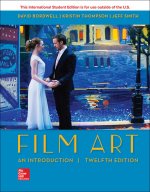
ISE Film Art: An Introduction
73.92 € -5 % -

Star Wars - the Jedi Path
18.45 € -23 % -

Mean Girls: The Burn Book Hardcover Ruled Journal
18.55 € -7 % -

The Illusion of Life : Disney Animation
59.50 € -

Ghostbusters: Proton Pack and Wand
12.40 € -9 % -
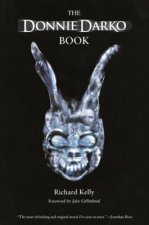
Donnie Darko Book
17.84 € -11 % -

The Star Wars Archives 1977–1983
198.07 € -5 % -

Alien: The Archive - The Ultimate Guide to the Classic Movies
37.81 € -22 % -

Filmmaker's Handbook, The (fifth Edition)
34.38 € -15 % -

Sofia Coppola
20.87 € -

Making of Aliens
49.91 € -20 % -
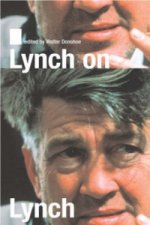
Lynch on Lynch
17.84 € -11 % -
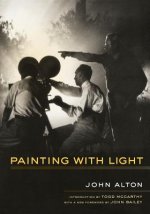
Painting With Light
35.49 € -

Grammar of the Film Language
36.20 € -

Persona 5
33.78 € -16 %
Osobný odber Bratislava a 2642 dalších
Copyright ©2008-24 najlacnejsie-knihy.sk Všetky práva vyhradenéSúkromieCookies



 21 miliónov titulov
21 miliónov titulov Vrátenie do mesiaca
Vrátenie do mesiaca 02/210 210 99 (8-15.30h)
02/210 210 99 (8-15.30h)